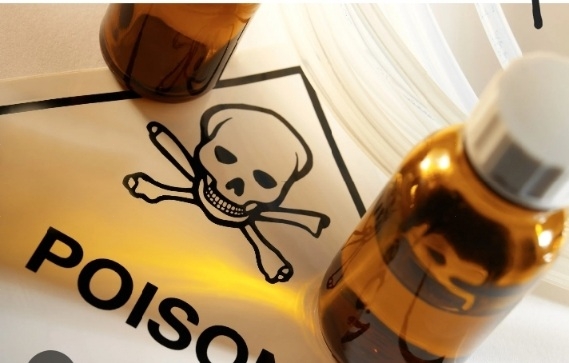By Emmanuel Eumu
A report by the Ministry of Internal Affairs indicates that the eastern part of Uganda leads in cases of poisoning. According to Internal Affairs spokesperson, Simon Mundeyi, the Government Analytical Laboratory received 976 poisoning cases between January and September 2024, with 3,848 samples analyzed.
This highlights the need for sustained awareness and education on poisoning prevention and management in Uganda.
“The cases submitted for scrutiny at the Government Analytical Laboratory reveal that the districts of Pallisa, Budaka, Kibuku, Mbale, Serere, and Kumi in Eastern Uganda have the highest number of documented cases,” Mundeyi stated.
He added that Northern Uganda, Western Uganda, and the greater Masaka region in Central Uganda follow closely in recording the highest number of poisoning cases.
Statistics from the Ministry of Internal Affairs indicate that suicide is the primary cause of poisoning, accounting for 63% of cases in urban areas compared to 25.6% in rural regions. The most prevalent household poisons include medications for both humans and animals, such as paracetamol, ibuprofen, iron tablets, contraceptive pills, antidepressants, cough and cold medicines, chest rubs, and vaporizer fluids.
“There are also personal hygiene products and cosmetics, including hand sanitizer, mouthwash, shampoo, perfume, and nail polish remover, as well as cleaning products like dishwashing and laundry liquids, dishwasher powders and tablets, bleach, oven cleaner, eucalyptus oil, and shower cleaner,” Mundeyi elaborated.
He also mentioned solvents like methylated spirit and turpentine, pesticides such as flea collars, fly spray, animal worming tablets, insecticides, herbicides, mothballs, rodent and cockroach baits, along with garden and automotive products like fertilizers, petrol, diesel, oil, and radiator fluid.
Mundeyi pointed out that factors contributing to poisoning include a lack of information on chemical and poison handling, insufficient evidence on the extent and types of poisoning, limited knowledge of poison types and exposure, and inadequate protective measures.
He highlighted the signs and symptoms of poisoning, which include malaise, excessive salivation, lacrimation, urinary incontinence, vomiting, blurred vision after meal ingestion, headache, nausea, abdominal pain, diarrhea, bradycardia, dizziness, and sweating, among others.
Mundeyi emphasized that the Directorate of the Government Analytical Laboratory plays a crucial role in addressing poisoning through its toxicology division, which conducts medico-legal investigations and provides guidance on the diagnosis and management of poisoning.
“If you suspect poisoning in yourself or someone else, please dial 0752438587 immediately for assistance,” he urged.


